Rhus, Sumac
SumachSumaq (Unani)
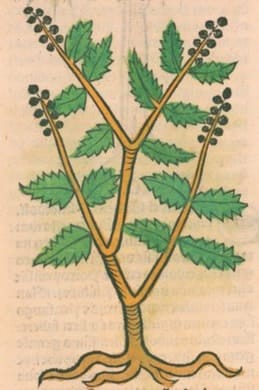 Ortus Sanitatis, Meydenbach, 1491
Ortus Sanitatis, Meydenbach, 1491
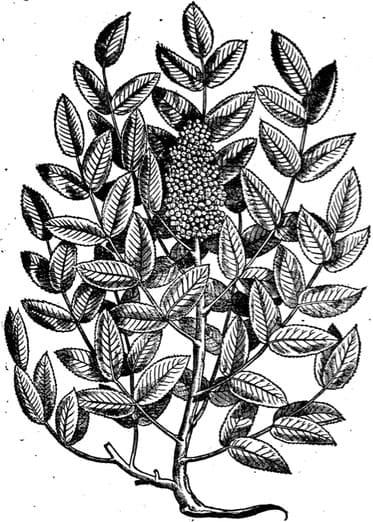
|
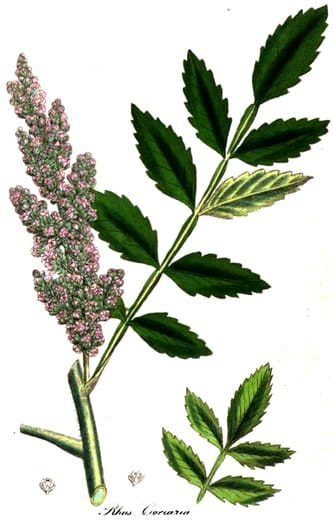
|
|
New Kreuterbuch, Matthiolus, 1563 |
Medical Botany, Woodville, Hooker, Vol. 3, 1832 |
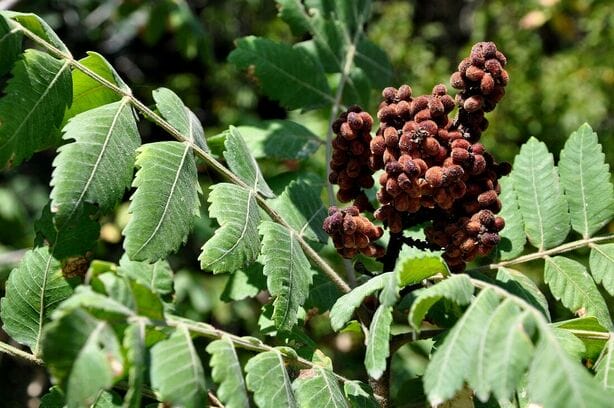 Rhus coriaria
Rhus coriaria(Photo by Lazaregagnidze) (Wikimedia)
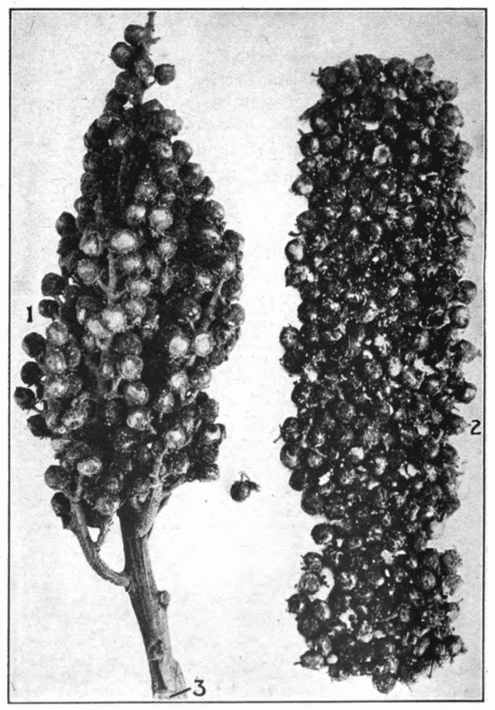 SUMAC
SUMACSquibb’s Atlas of the Official Drugs, Mansfield, 1919

Members CLICK HERE for the PRO VERSION
Botanical name:
Rhus spp.
R. parviflora, R. coriaria (European Sumac); some American species are used similarly
Parts used:
Seed
Temperature & Taste:
Cold, dry. Sour
Classifications:
2O. ASTRINGENT
4e. STOMACHIC
Uses:
1. Clears Heat, Stops Leakage:
-Diarrhea, Dysentery
2. Clears Heat, Stops Bleeding:
-Bleeding from the Stomach
3. Clears Stomach Heat:
-Nausea, Vomiting
4. Externally:
-decoction is used to strengthen the gums
Dose:
Powder: 2–4 grams
Correctives:
… available in PRO version
Substitutes:
… available in PRO version

Main Combinations:
1. Diarrhea, Dysentery:
i. Sumac with
… available in PRO version
ii. Chronic Diarrhea, Sumac with
… available in PRO version
iii. Diarrhea, Gastritis, Sumac with
… available in PRO version
iv. Sumac with
… available in PRO version
v. Sumac with
… available in PRO version
2. Stomach Heat, Fever, Sumac with
… available in PRO version
3. Diabetes, Sumac with
… available in PRO version
4. Bleeding from Heat:
i. Sumac with
… available in PRO version
ii. Sumac with
… available in PRO version
5. Bleeding from the Stomach:
i. Sumac with
… available in PRO version
ii. Sumac with
… available in PRO version
6. Bladder Ulcers, Sumac with
… available in PRO version
7. Receding Gums, prepare a mouth wash of Sumac,
… available in PRO version
8. Gingivitis, Sumac,
… available in PRO version
9. A Gargle to expel “exudations of the Brain” (Rheum), Sumach,
… available in PRO version
Major Formulas:
Powder to Stop Bleeding of the Stomach (Nicholas)
Powder for Diabetes Greater (Unani)
Troches of Ramich (Mesue)
Troches of Spodium (Trochisci Spodii) (Avicenna)
Electuarium Acharistum (Nicholas)
Cautions:
1. Not used in those with Cold Stomach or Liver.
Main Preparations used:
-
Extra Info
-
History
Pliny on Sumac:
|
‘Nor yet has the tree called “rhus” any Latin name, although it is employed in numerous ways. Under this name are comprehended a wild plant, with leaves like those of myrtle, and a short stem, which is good as an expellent of tapeworm; and the shrub which is known as the “currier’s plant,” of a reddish colour, a cubit in height, and about the thickness of one’s finger, the leaves of which are dried and used, like pomegranate rind, for curing leather. ‘Medical men also employ the leaves of these plants for the treatment of contusions, and for the |
cure of cceliac affections, and of ulcers of the rectum and phagedamic sores; for all which purposes they are pounded with honey and applied with vinegar. A decoction of them is injected for suppurations of the ears. With the branches, boiled, a stomatice [medicine for the mouth] is also made, which is used for the same purposes as that prepared from mulberries; it is more efficacious, however, mixed with alum. This preparation is applied also to reduce the swelling in dropsy.’ (The Natural History of Pliny, trans. by Bostock and Riley, Vol. 5, 1856) |
